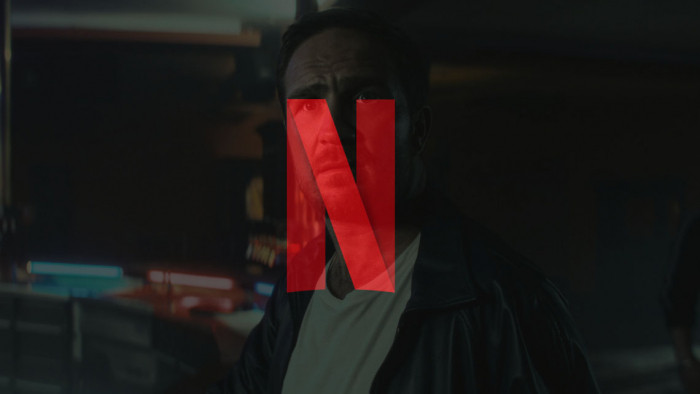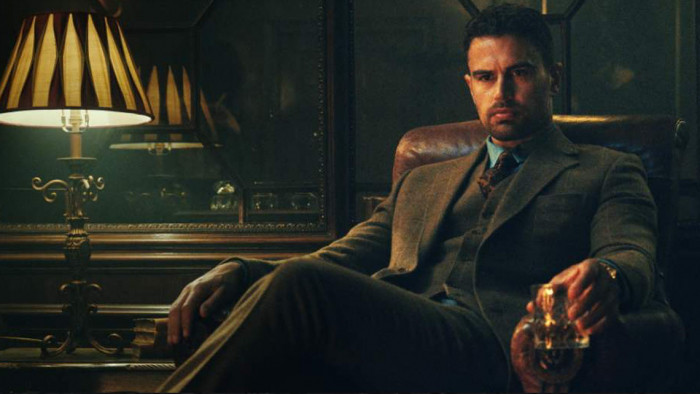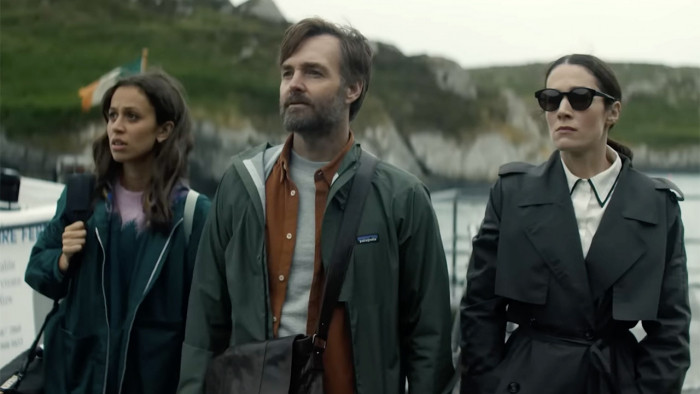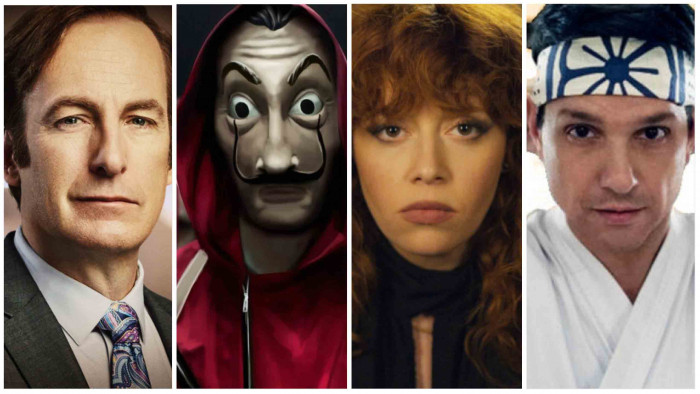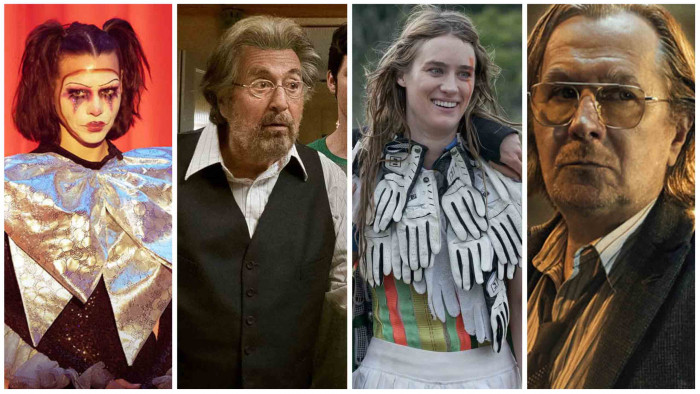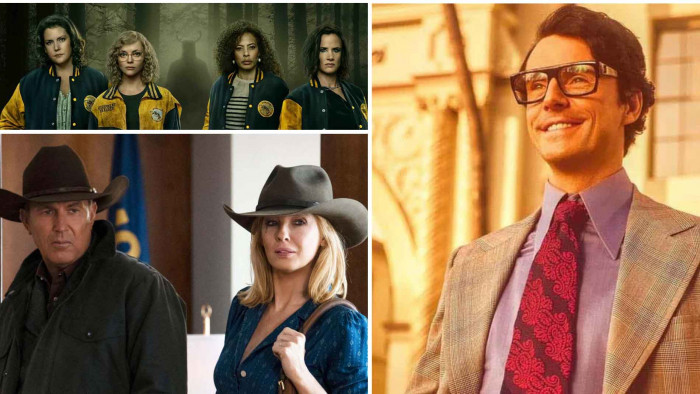Louis Theroux: "Look inside anyone's head and you’ll find something pretty odd"
Louis Theroux: "Look inside anyone's head and you’ll find something pretty odd"


Dan Masoliver sits down with this generation’s greatest inquisitor, Louis Theroux
Louis Theroux, a man who’s become synonymous with protracted, squirming silences, has been talking pretty solidly for the best part of an hour. This loose-tongued, off-duty Theroux, dressed in a midnight blue T-shirt, slim jeans and black Converse sneakers, is somewhat at odds with the straight-faced wooden figure you might expect to encounter after watching two decades’ worth of his BBC documentaries. He’s much chattier in person. Even when he’s discussing his appreciation of conversational quiet.
“I think silence can be a very revealing thing,” says Theroux, leaning back in his chair in his local northwest London pub. “So much of what I find interesting in encounters is not the words, it’s what’s between the words, or the way conversation is framed. You pay more attention when less is said.” This ability not just to endure an uncomfortable silence, but to engineer it, is something of a trademark for the 46-year-old. One that’s been honed over the years to coax porn stars, paedophiles and politicians, among many others, into revealing their innermost thoughts, feelings and desires – however unexpected or unpalatable they are.
His films may have evolved from explorations of weirdness (UFO conspiracists and professional wrestlers) into something altogether more mature (alcohol addiction and mental health), but nevertheless they all have it: that moment when a question is asked and a cloud of silence descends. Most of us would squirm, rush to fill the void. Theroux relishes it. “I do feel a sort of tension in the room, but I don’t feel embarrassed. That is the sweet spot of a certain type of encounter,” he says. “When you know you’re in the zone of what should be discussed, because it’s the thing that’s being resisted in some way. Because, actually, conversations aren’t just about information flowing back and forth, it’s a dramatic encounter. Or at least, it can be."

The allure of Scientology
His next project, the playfully titled My Scientology Movie, is a far cry from Theroux’s usual output. As the name suggests, the feature-length cinematic release offers an in-depth look at the Church Of Scientology. But if you’re expecting to see the filmmaker spend 48 confessional hours with Church leader David Miscavige, sipping tea with poster boy Tom Cruise, or even conversing at the most basic level with any senior figure within the Sea Org (the Church’s clerical top brass), you can forget about it.
Back in 2002, when Theroux first approached Scientology’s powers that be about the possibility of their participating in a documentary about their religion, it became clear he was wasting his time. “That documentary will never be made,” says Theroux, mournfully. “It is in their Tech – what Scientologists call their scriptures and practices – that journalists are fundamentally devious and untrustworthy. On their Tone Scale, 1 being the lowest, 40 being the highest, they consider journalists to be 1.1. Perverts, basically.” Without the access needed to give Scientology the full Theroux treatment, the project was dropped.
In the intervening years, however, Theroux’s fascination with this secretive organisation never waned. “I wanted to explore the point at which this laudable and rather positive urge to be part of a meaningful religious experience is in danger of drifting into something more abusive and corrupt. How do you go from this positive life-changing thing to this dangerous and destructive cult? How do you reach that tipping point? It’s the fundamental paradox of utopianism: if you believe you have a world-changing belief system or ideology that has a real chance of eradicating crime, mental illness and war, what would you not be willing to do for that? It just goes to the heart of so much about the human condition.”
Theroux’s eyes light up as he talks about the religion created by science-fiction author L Ron Hubbard. “I remember thinking, in my late teens, there is something utterly bizarre and brilliant about the notion of a sci-fi writer creating a religion. But also that there were rumours of allegedly abusive practices, hard sales tactics used to recruit people and to get them to spend more and more money. The reason I do the work I do today is because I have a fascination with stories that are offbeat, but also involve difficult emotions or the extremes of life in some way. Scientology ticks all those boxes.”

Overcoming setbacks
So, if the Scientologists wouldn’t let him into their reality, well, Theroux would just have to create his own. The bizarre but gripping result is My Scientology Movie. Yes, we meet the scientologists-turned-apostates who reveal all the sordid details of the alleged assaults, psychological torture and cover-ups of almost unimaginable abuses of power within the Church. So far, so Theroux. But then, in lieu of any serving Scientologists showing us any of this, Theroux hires actors to reenact the sorts of situations described by former Sea Org big wigs such as Marty Rathbun – who’s now effectively Pubic Enemy No1 in the eyes of the Church. So rather than show Church leader Miscavige treating his followers badly, we see an actor who has been hired to play the part of Miscavige do so, while the real-life Rathbun looks on approvingly. If it sounds odd, that’s because it is.
“The notion of a film within a film, using actors and re-enactments, role play and Hollywood soundstages… it’s a device that could come across gimmicky if it wasn’t handled right,” says Theroux. At times, unavoidably, it does. Nonetheless, the film provides a dark, sinister insight into a world that many warned Theroux to not even attempt to enter. Scientology is well-known for the aggressive tactics it deploys to protect its secrets from snooping journalists. Back in 2007, a video of Panorama’s John Sweeney went viral after the experienced reporter lost his proverbial at a camera crew that had been sent to passive-aggressively document (and sabotage) Sweeney’s attempts to film them.
Didn’t the possibility of this sort of treatment – or something even worse – worry Theroux? He leans forward and a mischievous smile creeps across his face. “The day they turned up filming us and refused to identify themselves was one of the most exciting days in my professional career. And when we were being tailed by private investigators, it was like, ‘Holy smoke, they really do this! I know everyone says they do, but they actually do."

In pursuit of the truth
Being stalked by men in blacked-out SUVs, having cameras pointed aggressively in your face, and receiving threats of legal action from the Church Of Scientology’s lawyers – it doesn’t sound like a particularly enjoyable day at the office. But Theroux seems drawn to these kinds of people. As a child, during his days at Westminster School – where he formed lasting friendships with the likes of Adam Buxton, Joe Cornish and Nick Clegg – Theroux says he was fascinated by extremes of behaviour. “At school there were sometimes kids being bullied or who seemed a bit different – I tended to be curious about that and the social dynamics of the school.”
Where most of us would effervesce with rage at the words and actions of bullies – child or adult – Theroux tries to engage with, and understand, them. “In my TV programmes I have been immersed in worlds such as the Westboro Baptist Church, or the settlers in the West Bank, or Neo-Nazis, where there is a belief system that is beyond the pale to most people. And you get that strange double effect of being appalled by the practices and ideas, but also drawn in by the warm human qualities.” That, in fact, is his one regret with his Scientology movie. “I don’t know that you get a real sense of the warm human qualities of the Scientologists in my film, because whenever I met one they were usually following and filming me, or shouting at me and telling me they were going to call the police.”
This is the man who politely asked a convicted patricidal murderer whether or not he loved his father. Who stood in the kitchen with the head of the Westboro Baptist Church, the group who disrupt funerals of war veterans while waving placards bearing slogans like ‘God hates fags’, and gently interrogated her homophobic views. “I try to separate people from their beliefs and practices, and meet them in a fresh way, assuming that the bad things they espouse are separable from my ability to form a rapport with them. It’s all about communication. I’m not there to satirise or deride, it’s about seeing people as people. It’s not about exposing people, it’s about understanding them – getting to the truth.”
The human condition
Some viewers might see this empathetic approach as more than the film’s subjects deserve. But Theroux is quick to point out that just because he is trying to understand these people, it does not mean he agrees with them. “How could you not have pre-conceptions about what it means to be a Neo-Nazi or a paedophile? You bring a moral outlook. It’s not a case of thinking, ‘I’m going to go to Westboro Baptist Church and keep an open mind about whether it’s cool to upset people at funerals and shout bizarre homophobic slogans.’ It’s clear to me that’s not acceptable.”
Theroux’s work is so full-on that talk eventually turns to the calmer part of his life – he describes his family life as “prosaic”, and he likes to cook. But his work means he spends months immersed in grim subject matters. Does he find it hard returning to that peaceful dad-and-husband life? Does he ever worry?
He folds his arms across his chest and ponders on this. “I never felt, when I was with the people we’ve spoken about, that they were anything more than a narrow margin of an even more far-out margin. It was pretty fringe. It’s slightly different now, because we’re in the age of Trump, and some of that stuff is being mainstreamed. Mainly I worry about bigger issues: climate change, crime, drug and alcohol addiction, the social fabric, the way the world is deteriorating. But I don’t take the work home with me."
Tomorrow, Theroux jets off to work on his next project. He can’t reveal any details. One thing’s for sure, though, he’s not worried about running out of material. “Life is going to be complicated and baffling and upsetting until 10,000 years hence, if there’s still a planet. The human condition shows no sign of becoming comprehensible. Life is bizarre. Life is weird. Life is difficult.” He looks across the pub. “You can look inside the head of anyone in this room and you’ll find something pretty odd.”
My Scientology Movie is at selected cinemas from 7 October
[Images: Matt Holyoak]
